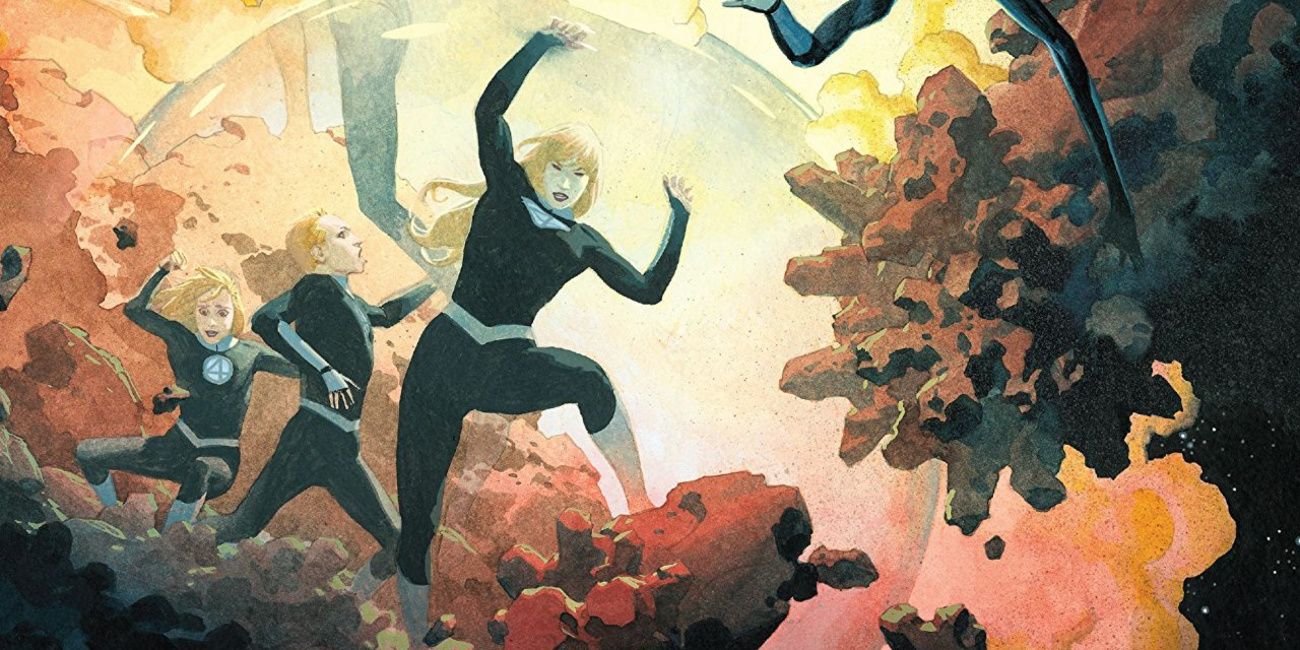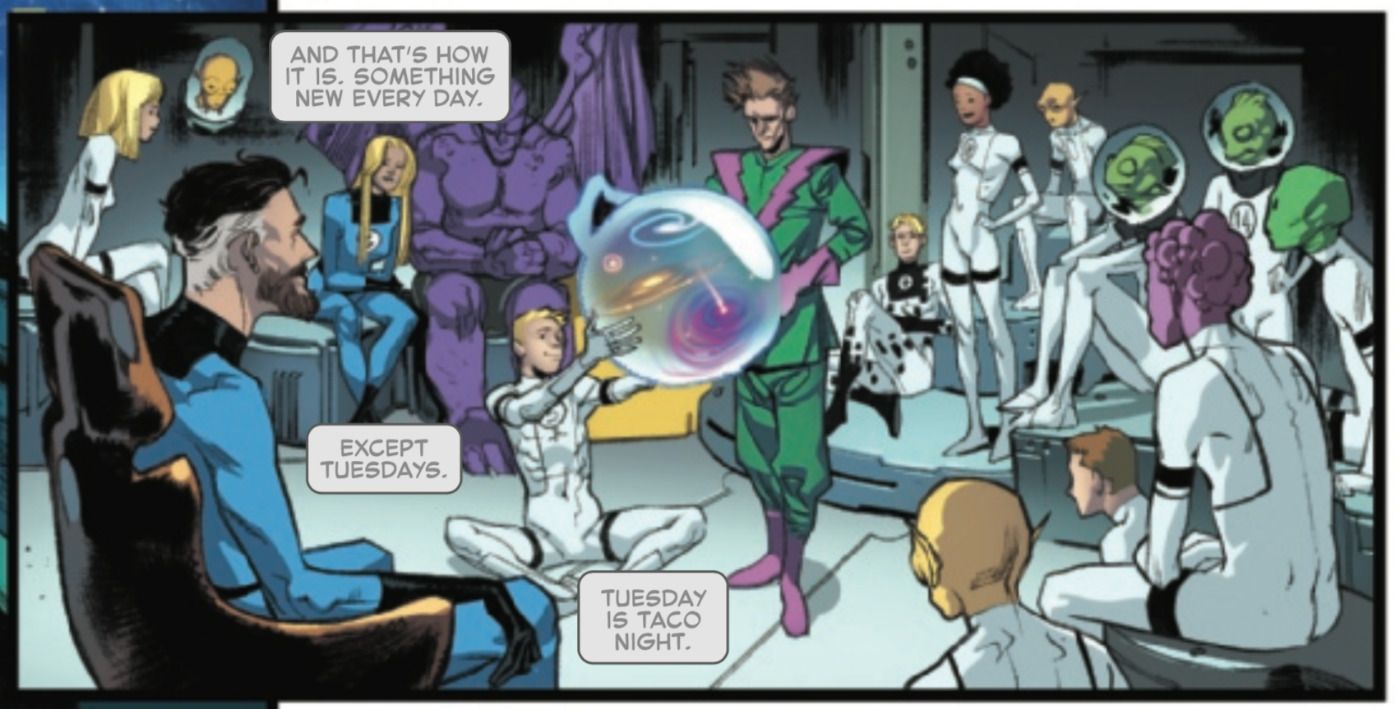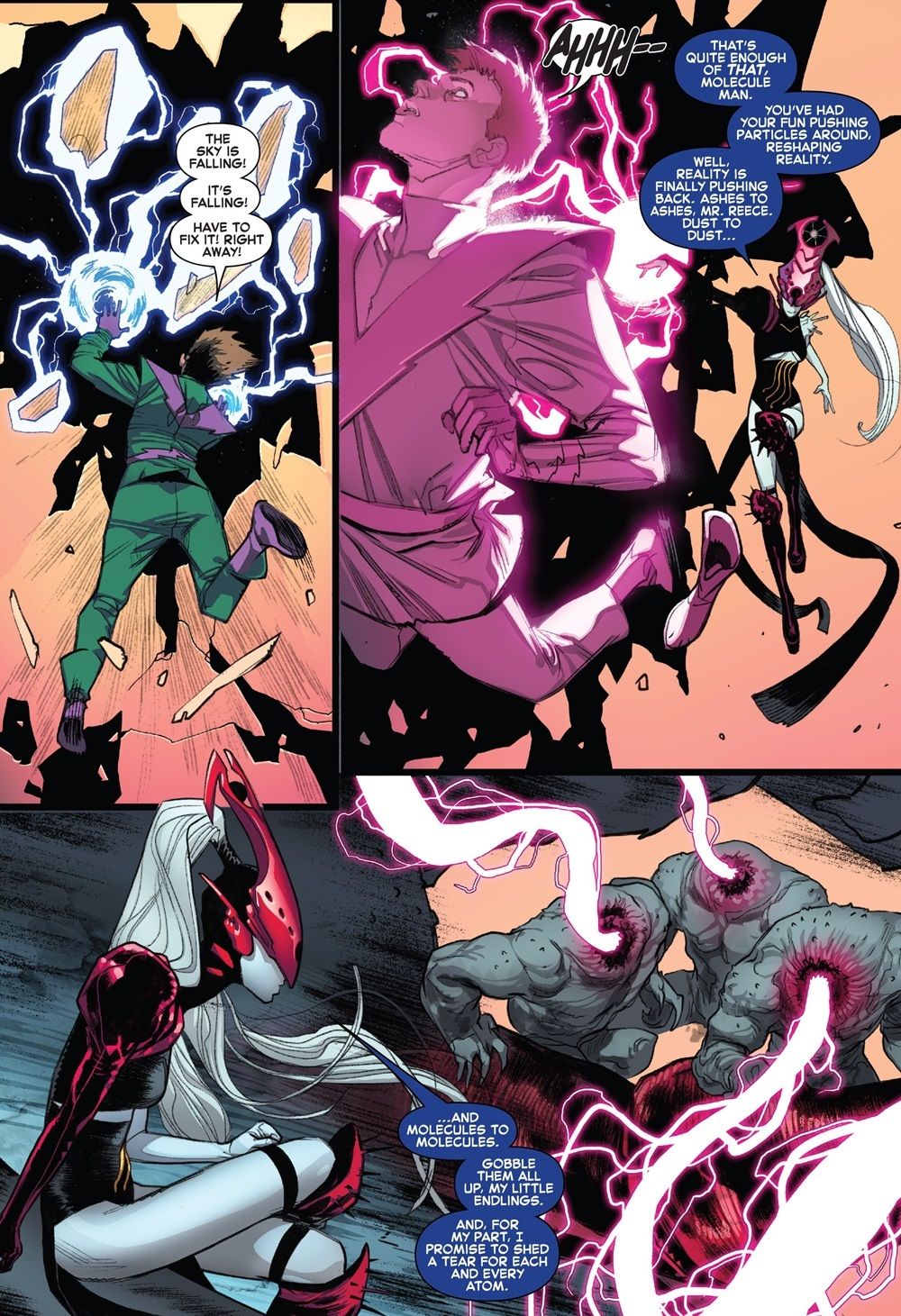WARNING: The following article contains spoilers for Fantastic Four #2 by Dan Slott, Sara Pichelli, Elisabetta D'Amico, Marte Gracia and Joe Caramagna, in stores now.
Dan Slott and Sara Pichelli's Fantastic Four is meant to celebrate the joyful cosmic adventures of Marvel's first family of superheroes -- or so it seems at first. The opening pages of the series' second issue does just that, bringing back the super-team with hope and brilliance, peppering their adventures with the wonder of the unknown. There's a sense of excitement surrounding Reed, Susan, Ben and Johnny's reunion. But we should have expected such a joyous and momentous occasion to also feature heartbreak, and so it does -- in the place we'd least expect it.
Fantastic Four #2 is not only an issue celebrating a family reunion; it shows exactly the circumstances that bring the super-family together once again, and it's darker than anyone could have foreseen. Not only does it introduce the series' newest villain in the form of the nightmarish Griever at the End of All Things, it also features the shocking death of one of the Marvel Universe's most powerful characters: the Molecule Man.
RELATED: Fantastic Four #2 Reveals Massive Changes for Franklin & Val Richards
The Molecule Man debuted as a super-villain in the pages of Stan Lee and Jack Kirby's Fantastic Four #20 in 1963. The character had a long stint as an unstable villain, one who never quite understood the full potential of his power, the ability to manipulate and reshape the very molecules that make up our reality. Though he factored heavily into the original Secret Wars series from 1984, the character eventually faded into obscurity, save for a few appearances here and there. Molecule Man rose to prominence one more a few years ago, in the pages of writer Jonathan Hickman's Avengers storyline, "Time Runs Out," which led directly into the second Secret Wars in 2015.
With all of reality destroyed, and Battleworld the only planet left in the multiverse, Secret Wars ended with Molecule Man transferring the awesome power of the Beyonders to Reed Richards, who recreated the entire universe. Then, with the help of his young son Franklin Richards and the rest of the Future Foundation, Reed left on a new mission with his wife Susan, his daughter Val and the Molecule Man to recreate the Marvel Multiverse. This is the adventure the characters have been on for the past few years, operating behind the scenes while they were missing from the current slate of Marvel's comic books.
Fantastic Four #2 catches us up with the Future Foundation's mission throughout the multiverse. The process sees Franklin create a new universe, the Molecule Man slicing off a part of himself to anchor it to reality, and then the team explores and catalogs this new reality; lather, rinse, repeat. The Molecule Man is no longer seen as a reformed villain; for Franklin, Val and the rest of the Future Foundation, he's Owen Reece, a trusted member of their family.
RELATED: A Familiar Face Reignites The Thing & Human Torch’s Dormant Powers
However, this new bond comes to an end when the reality-consuming Griever at the End of All Things reveals herself. With Franklin's powers depleted, the Griever strikes, destroying many of the new universes that the Future Foundation had created. What's more, she kills perhaps the one character who could have stopped her. With the help of her monstrous endlings, the Molecule Man is transformed into energy and consumed whole by the three creatures.
The members of the Future Foundation are horrified, but there is nothing they can do. Reality is crumbling down around them, and they have no time to mourn. Somehow, one of the most powerful character's in the Marvel Multiverse has died, speaking to the unimaginable power-levels of the newly-introduced villain. As she proceeds to destroy all of the universes Franklin has created, she is also killing all of Owen's doubles. If the Griever can easily dispose of someone like the Molecule Man, what hope does the Fantastic Four have?



